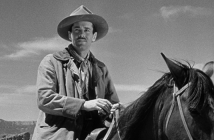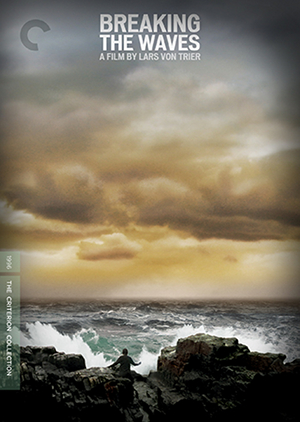
Cast: Julia Louis-Dreyfus, James Gandolfini, Catherine Keener
Director: Nicole Holofcener
Country: USA
Genre: Comedy
Official Website: Here
Editor’s Notes: Enough Said is available today on Blu-ray and DVD.
Marriage exposes raw emotions and the most glaring evidence of flaws. Albeit a happiness, it constantly evolves and begs patience and understanding. On the other end of the spectrum, divorce portends to be a salve to problems found in marriage, but the truth is, divorce forces each partner to reflect and explore what went awry. It calls into question decisions that were once thought to be solidly made. It forces each ex to wonder what sort of ideologies he or she adheres to. Brides and grooms don’t enter into matrimony for the end game of divorce, so there is a natural inquiry into each other’s ability to read other people, to remain faithful, to accept the inevitable ups and downs inherent to relationships.
Enough Said is a romantic comedy with a brilliant insight on the difficulties of marriage and the turbulent wake of divorce. More precisely, it accurately depicts the ways in which a failed marriage compels each ex to examine and re-examine their future relationships, often followed by the perceived shade of failure.
Enough Said is a romantic comedy with a brilliant insight on the difficulties of marriage and the turbulent wake of divorce.
In his last role, the late James Gandolifini reminds us that he has depth beyond the hardened mafia boss Tony Soprano. In Enough Said, he plays Albert, a recently divorced man whose married life was rife with criticism. He is the guy who put his best foot forward while courting and then seemingly digressed from there. The best meals he cooked for his ex was spaghetti and eggplant, but beyond that, he was culinarily illiterate. The house he owned – now belonging to his ex – is beautiful, but the rooms were half furnished. Ostensibly, everything was together. Internally, the progress was arrested.

Like Albert, his ex-wife, Marianne (Catherine Keener) is far from perfect, but we understand her frustration with him. She’s a poet, she wants to be challenged, and she’s a loving mother. Albert’s a loving father, but he’s also content with stagnancy. He has no aspirations to change, but the film doesn’t insist that he should. Rather, the film is diplomatic, not vilifying any of its characters. Rather, it’s earnest in its depictions of flawed people.
The centrally flawed character is Eva, (Julia Louis-Dreyfus). A masseuse and single parent, Eva dreads her daughter’s all-too-close departure for college. First and foremost, she is afraid of being alone, but ultimately, she’s just afraid. She’s afraid to voice an opinion or make a request. Complaining that one of her clients never offers to help carry her massage table up his many stairs, she resents him but never asks him for help. It’s fine to suggest that chivalry and manners should dominate interactions, but this is hardly practical, and not until she asks him for help at the very end of the film does he understand his ignorance and she understands hers.
The blame for divorce falls on the inability to evolve together, but none of the marital participants is vilified, which is an honest depiction of failure, not one that forces the audience to understand how to play the game.
Eva’s interactions with her client are a microcosm of how she carries on with everyone else. This is most clearly illustrated when she begins a friendship with Marianne and begins a relationship with Albert, first without making the connection between the two, and furthermore when she does make the connection but refuses to mention it to either party. This in turn brings out Eva’s most vicious insecurities. Using Marianne’s unintentionally hurtful laments about her marriage and ex-husband, Eva places an unfair gaze on Albert, subconsciously focusing on flaws that were not readily apparent. Here, we see a conflict between the fear of a commitment that is statistically likely to fail and a fear of holding secure her own identity. She refuses to speak when she should, and when she does speak, she often channels someone else around her, be it her daughter, her daughter’s friend, Marianne, or her best friend Sarah (Toni Collette).
Enough Said is a refreshing addition to the romantic comedy genre. It is honest and, for the most part, realistic. There is no true villain here, but each character can be likeable and dislikable. The blame for divorce falls on the inability to evolve together, but none of the marital participants is vilified, which is an honest depiction of failure, not one that forces the audience to understand how to play the game.
[notification type=”star”]89/100 ~ GREAT. Enough Said is a refreshing addition to the romantic comedy genre. It is honest and, for the most part, realistic. There is no true villain here, but each character can be likeable and dislikable. [/notification]


